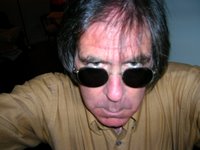 The 10th in 1925 featured the start of the trial of John Scopes, an inexperienced high school science teacher. Scopes had been charged with teaching evolution (instead of intelligent design). When Clarence Darrow had finished the People’s closing argument, Judge John T. Ralston, with a sense of resignation, inexplicably called the case to a halt, refusing to allow the defense to make a closing argument. It took the jury all of eight minutes to find Scopes guilty and he was fined $100, which Scopes’ lead attorney, William Jennings Bryan gallantly offered to pay.
The 10th in 1925 featured the start of the trial of John Scopes, an inexperienced high school science teacher. Scopes had been charged with teaching evolution (instead of intelligent design). When Clarence Darrow had finished the People’s closing argument, Judge John T. Ralston, with a sense of resignation, inexplicably called the case to a halt, refusing to allow the defense to make a closing argument. It took the jury all of eight minutes to find Scopes guilty and he was fined $100, which Scopes’ lead attorney, William Jennings Bryan gallantly offered to pay.
On this date in 1938, Howard Hughes, a man who proved that it is indeed possible to have too much money, completed an airplane flight around the world that had taken 91 hours
 Many people today seem gripped by a strong sense of malaise. We as a people appear to be uncertain and unwilling to take a role in our national affairs. Jimmy Carter pointed this out as early as 1979. Taking a stand in the political life of one’s country carries both moral and temporal responsibilities as well as risks. Consider John Ball. He took a very proactive role in the affairs of England in the 14th century. I mean he was British after all so this seems quite appropriate, right? On the 15th in 1381 as the British monarch, King John II, looked on Ball was hanged, then drawn and quartered, which is a particularly nasty way to die. It seems that good King John did not seriously consider the option of simply giving him a time out.
Many people today seem gripped by a strong sense of malaise. We as a people appear to be uncertain and unwilling to take a role in our national affairs. Jimmy Carter pointed this out as early as 1979. Taking a stand in the political life of one’s country carries both moral and temporal responsibilities as well as risks. Consider John Ball. He took a very proactive role in the affairs of England in the 14th century. I mean he was British after all so this seems quite appropriate, right? On the 15th in 1381 as the British monarch, King John II, looked on Ball was hanged, then drawn and quartered, which is a particularly nasty way to die. It seems that good King John did not seriously consider the option of simply giving him a time out.








